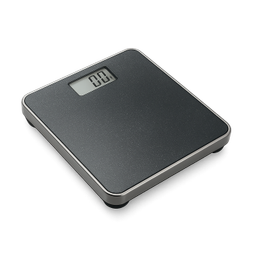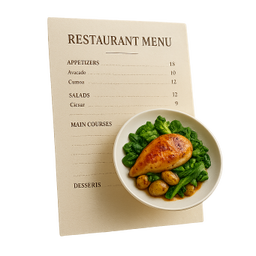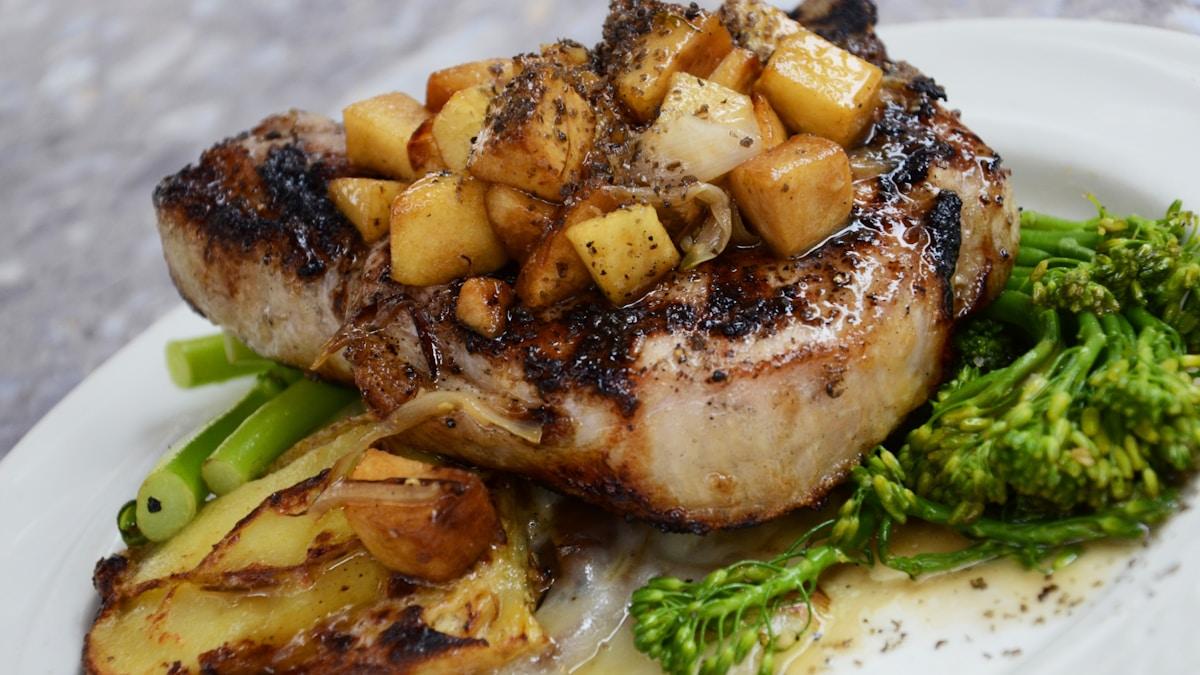
Mediterranean Diet 101: Why Nutritionists Call It the Gold Standard
Discover why the Mediterranean diet is ranked #1 by health experts. Learn the science-backed benefits, core principles, and practical tips to start eating Mediterranean style today.
Verdu Team
The team behind Verdu, your AI-powered nutrition companion
With new diet trends appearing every month—keto, paleo, carnivore, intermittent fasting—it's easy to feel overwhelmed trying to figure out what to eat. But while fad diets come and go, one eating pattern has stood the test of time and rigorous scientific scrutiny: the Mediterranean diet.
Consistently ranked as the #1 diet by health organizations worldwide, the Mediterranean diet isn't just another weight-loss trend. It's a lifestyle approach backed by decades of research showing reduced risk of heart disease, longer lifespan, better brain health, and improved overall well-being. Let's explore why nutritionists consider it the gold standard and how you can start eating Mediterranean style today.
What Is the Mediterranean Diet?
The Mediterranean diet is based on the traditional eating patterns of countries bordering the Mediterranean Sea—particularly Greece, Italy, and Spain—during the mid-20th century.
But here's the key distinction: it's not a "diet" in the restrictive sense. There's no calorie counting, no forbidden foods, and no rigid meal plans. Instead, it's a flexible, sustainable way of eating that emphasizes whole, minimally processed foods.
The Core Principles
Eat Plenty Of:
- Vegetables and fruits (7-10 servings daily)
- Whole grains (whole wheat bread, brown rice, quinoa, oats)
- Legumes (beans, lentils, chickpeas)
- Nuts and seeds
- Extra virgin olive oil as the primary fat source
- Fish and seafood (at least twice weekly)
- Herbs and spices for flavor
Eat In Moderation:
- Poultry and eggs (a few times per week)
- Dairy products, especially yogurt and cheese (moderate amounts)
- Red wine (optional, 1 glass with meals)
Eat Rarely:
- Red meat (a few times per month, small portions)
- Processed meats
- Refined grains and added sugars
- Highly processed foods
The emphasis is on adding nutrient-dense foods, not obsessing over restriction. This makes it one of the most sustainable eating patterns long-term.
Why Nutritionists Call It the Gold Standard
The Mediterranean diet isn't popular because of marketing—it's backed by some of the most compelling nutrition research in history.
Heart Health Benefits
The Mediterranean diet has been extensively studied for cardiovascular health, and the results are remarkable.
According to the American Heart Association, this eating pattern can help reduce risk of heart disease and stroke by improving multiple risk factors—lowering LDL cholesterol, reducing blood pressure, and decreasing inflammation.
A landmark study of nearly 26,000 U.S. women followed for up to 12 years found that those who closely adhered to a Mediterranean diet had a 25% lower risk of cardiovascular events, including heart attack and stroke.
The American Heart Association rates the Mediterranean diet with an alignment score of 89 out of 100 with their dietary guidelines—one of the highest scores among popular eating patterns.
Longevity and Disease Prevention
Perhaps the most compelling research comes from longevity studies.
A 2024 study published in JAMA followed more than 25,000 women for up to 25 years. The findings? Women who closely followed the Mediterranean diet had up to a 23% lower risk of all-cause mortality—meaning they were less likely to die from any cause during the study period.
Harvard T.H. Chan School of Public Health research found that adherence to a Mediterranean lifestyle resulted in:
- 29% lower risk of all-cause mortality
- 28% lower risk of cancer mortality
These aren't small improvements—they're substantial reductions in disease risk that can translate to years of additional healthy life.
Brain Health and Cognitive Function
Your brain thrives on the Mediterranean diet.
Research from Brigham and Women's Hospital shows that the antioxidants, omega-3 fatty acids, and anti-inflammatory compounds in this eating pattern support memory, focus, and cognitive function as you age.
Studies have linked Mediterranean diet adherence to:
- Reduced risk of Alzheimer's disease and dementia
- Better memory and executive function in older adults
- Slower cognitive decline with aging
Weight Management
While not designed specifically for weight loss, the Mediterranean diet helps many people reach and maintain a healthy weight naturally.
According to the Mayo Clinic, the diet's emphasis on fiber-rich whole foods, healthy fats, and lean proteins promotes satiety—you feel full and satisfied without overeating.
Unlike restrictive diets that leave you hungry, the Mediterranean approach supports sustainable weight management by focusing on food quality, not just quantity.

The Science Behind the Benefits
What makes the Mediterranean diet so effective? Let's look at the biological mechanisms.
Healthy Fats Are the Foundation
The Mediterranean diet is not a low-fat diet—in fact, fat can make up 35-40% of daily calories. But the type of fat matters.
Extra virgin olive oil, the cornerstone of Mediterranean eating, is rich in monounsaturated fats and powerful antioxidants called polyphenols. These compounds reduce inflammation, improve cholesterol profiles, and protect blood vessels.
Fatty fish like salmon, sardines, and mackerel provide omega-3 fatty acids, which reduce triglycerides, lower blood pressure, and support brain health.
Anti-Inflammatory Powerhouse
Chronic inflammation is linked to nearly every major disease—heart disease, diabetes, cancer, Alzheimer's.
The Mediterranean diet is inherently anti-inflammatory thanks to:
- Polyphenols from olive oil and red wine
- Omega-3s from fish and walnuts
- Antioxidants from colorful fruits and vegetables
- Fiber from whole grains and legumes
Researchers from the 2024 JAMA study identified that biomarkers of metabolism and inflammation were the most important factors explaining the Mediterranean diet's longevity benefits.

Finding Your Balance
One of the challenges with any eating pattern is understanding whether you're actually following it correctly. Are you getting enough omega-3s from fish? Is your fat ratio balanced between healthy and less-healthy sources? Are you eating enough vegetables?
Verdu's AI-powered meal analysis helps you understand how aligned your meals are with Mediterranean diet principles. Simply snap a photo of your plate, and get instant feedback on your nutrient breakdown—healthy fats, fiber, omega-3s, and more. No manual tracking, no guesswork.
Fiber and Gut Health
Mediterranean eating is naturally high in fiber from vegetables, fruits, whole grains, and legumes.
Fiber feeds beneficial gut bacteria, promotes digestive health, stabilizes blood sugar, and increases satiety. Most Americans get only half the recommended daily fiber—the Mediterranean diet easily surpasses recommendations.
A healthy gut microbiome, supported by fiber-rich plant foods, has been linked to improved immunity, better mood, and reduced disease risk.
How to Get Started: Practical Steps
Ready to eat Mediterranean style? Here's how to make the transition without overhauling your entire kitchen.
1. Make Olive Oil Your Go-To Fat
The swap: Replace butter, margarine, and vegetable oils with extra virgin olive oil.
Use it for:
- Sautéing vegetables
- Salad dressings
- Drizzling over cooked dishes
- Dipping bread (instead of butter)
Pro tip: Look for high-quality extra virgin olive oil in dark bottles. It should taste slightly peppery or fruity.
2. Prioritize Fish Over Red Meat
The swap: Aim for fish or seafood at least twice per week. Replace red meat with fish, poultry, or plant-based proteins.
Easy options:
- Grilled salmon with vegetables
- Shrimp stir-fry with whole grains
- Baked cod with lemon and herbs
- Canned sardines or tuna on salads
Fatty fish like salmon, mackerel, and sardines are especially beneficial for their omega-3 content.
3. Build a Colorful Plate
The goal: Fill half your plate with vegetables and fruits at every meal.
Mediterranean eating celebrates produce. Think:
- Tomatoes, cucumbers, peppers, eggplant
- Leafy greens like spinach, arugula, kale
- Fresh herbs (basil, oregano, parsley)
- Seasonal fruits (berries, citrus, figs, grapes)
Make it easy: Keep pre-cut vegetables in your fridge for quick meals. Frozen vegetables work too—they're nutritious and convenient.
4. Choose Whole Grains
The swap: Replace white bread, white rice, and refined pasta with whole grain alternatives.
Mediterranean staples:
- Whole wheat bread and pita
- Brown rice, quinoa, farro, bulgur
- Whole grain pasta
- Oats for breakfast
Whole grains provide more fiber, vitamins, and minerals than refined grains, keeping you fuller longer.
5. Snack on Nuts and Seeds
The swap: Replace chips, cookies, and processed snacks with nuts, seeds, and fresh fruit.
Mediterranean snack ideas:
- A handful of almonds or walnuts
- Hummus with vegetables
- Greek yogurt with berries and honey
- Olives and cheese
Nuts and seeds provide healthy fats, protein, and fiber—perfect for sustained energy.

Common Misconceptions About the Mediterranean Diet
Let's clear up a few myths.
"It's Expensive"
Reality: Mediterranean eating can be budget-friendly.
Staples like beans, lentils, whole grains, seasonal vegetables, and canned fish are affordable. You're actually reducing spending on expensive processed foods and red meat.
Budget tips:
- Buy canned or dried legumes (beans, lentils, chickpeas)
- Choose frozen vegetables and fish
- Shop seasonal produce
- Buy store-brand whole grains and olive oil
"You Have to Eat Mediterranean Food"
Reality: You can adapt Mediterranean principles to any cuisine.
The core idea is eating more plants, healthy fats, whole grains, and fish—no matter the cultural context.
Examples:
- Asian cuisine: Brown rice, grilled fish, stir-fried vegetables with sesame oil
- Mexican cuisine: Black beans, grilled chicken, salsa, whole grain tortillas
- American cuisine: Grilled salmon, roasted vegetables, quinoa, mixed greens salad
As Harvard researchers noted, "it's possible for non-Mediterranean populations to adopt the Mediterranean diet using locally available products."
"It's a Low-Fat Diet"
Reality: Mediterranean eating is moderate to high in fat—but the right kinds of fat.
Olive oil, nuts, seeds, and fatty fish provide monounsaturated and polyunsaturated fats that improve health. The diet minimizes saturated fats from red meat and processed foods, not healthy fats.
Don't fear fat—embrace the healthy sources.
Your Mediterranean Meal Planning Starter Guide
Here's what a day of Mediterranean eating might look like:
Breakfast:
- Greek yogurt with fresh berries, walnuts, and honey
- Whole grain toast with avocado and tomatoes
- Coffee or tea
Lunch:
- Mediterranean grain bowl: quinoa, chickpeas, cucumbers, tomatoes, olives, feta, olive oil and lemon dressing
- Side of fresh fruit
Snack:
- Hummus with carrot and bell pepper sticks
- A handful of almonds
Dinner:
- Grilled salmon with lemon and herbs
- Roasted vegetables (zucchini, eggplant, bell peppers)
- Whole grain couscous or farro
- Mixed green salad with olive oil vinaigrette
Dessert (optional):
- Fresh fruit
- Small piece of dark chocolate

Making Mediterranean Choices When Dining Out
Eating Mediterranean at home is one thing—but what about restaurants?
Verdu's Menu Picker feature helps you identify Mediterranean-style options on any menu. Whether you're at an Italian bistro, a steakhouse, or a casual chain restaurant, get personalized suggestions for meals that align with your nutrition goals and Mediterranean eating principles.
Grilled fish, vegetable-forward dishes, salads with olive oil dressing, whole grains—Verdu highlights the best choices so you can enjoy dining out without derailing your healthy eating habits.
Quick Mediterranean Meal Ideas
5-Minute Meals:
- Whole grain toast with mashed avocado, tomatoes, and olive oil
- Greek yogurt parfait with nuts and berries
- Canned sardines or tuna on a bed of greens with olives and vegetables
15-Minute Meals:
- Whole grain pasta with canned tomatoes, garlic, olive oil, and fresh basil
- Chickpea salad with cucumbers, tomatoes, feta, olive oil, and lemon
- Scrambled eggs with sautéed vegetables and whole grain bread
30-Minute Meals:
- Grilled chicken with roasted vegetables and quinoa
- Baked fish with lemon, herbs, and a side salad
- Lentil soup with vegetables and whole grain bread
The Mediterranean diet doesn't require hours in the kitchen—simple, fresh ingredients prepared simply are the foundation.
Start Small, Stay Consistent
You don't have to overhaul your entire diet overnight. Start with one Mediterranean-style meal per day and build from there.
Week 1 Action Steps:
- Buy a bottle of extra virgin olive oil and use it this week
- Add one fish meal to your weekly rotation
- Double your vegetable intake at dinner
- Swap refined grains for whole grains in one meal daily
Week 2 and Beyond:
- Experiment with new Mediterranean recipes
- Try a new vegetable or legume you've never cooked before
- Reduce red meat and processed food gradually
- Focus on enjoying the flavors and variety
Remember: the Mediterranean diet is about abundance, not restriction. You're adding delicious, nourishing foods—not depriving yourself.

Smart Grocery Lists for Mediterranean Eating
One of the biggest barriers to healthy eating is the grocery store. You know you should buy more vegetables and whole foods, but it's easy to fall back on familiar processed items or forget key ingredients.
Verdu generates smart grocery lists tailored to Mediterranean eating principles. Based on your meal plans and current pantry inventory, you'll get a personalized shopping list that ensures you have everything you need—without overbuying or wasting food.
Shop with intention. Save money. Eat better.
The Bottom Line
The Mediterranean diet has earned its reputation as the gold standard for a reason. Decades of research from institutions like Harvard, Mayo Clinic, and the American Heart Association confirm what people in Mediterranean countries have known for generations: eating more plants, healthy fats, whole grains, and fish—while limiting processed foods and red meat—leads to better health and longer life.
This isn't a restrictive diet. It's a sustainable, flexible way of eating that prioritizes flavor, variety, and enjoyment alongside nutrition.
Whether your goal is heart health, longevity, brain function, or simply feeling better day-to-day, the Mediterranean diet offers a proven path forward.
Start small. Add more vegetables. Use olive oil. Eat fish twice a week. Build from there.
And if you want personalized guidance that makes Mediterranean eating effortless, Verdu is here to help. Get instant meal analysis, smart grocery lists, and dining-out recommendations—all powered by AI that understands your goals.
Start Eating Mediterranean Style Today
Ready to experience the benefits of the gold standard diet?
Download Verdu to track your nutrition, discover Mediterranean-style meals, and make healthier choices without the guesswork.
Want to learn more about nutrition fundamentals? Check out our guide on Understanding Macronutrients or discover how AI-powered meal planning reduces food waste.
Related Articles

Healthy Fats vs. Unhealthy Fats: The Complete Guide to Omega-3s, Saturated Fats, and More
Learn which fats support your health and which to avoid. Complete guide to omega-3s, saturated fats, unsaturated fats, and trans fats with science-backed recommendations.

15+ High-Protein Foods for Active Lifestyles: Beyond Chicken and Eggs
Tired of chicken and eggs? Discover 15+ diverse high-protein foods for athletes and active individuals. Learn protein timing, meal ideas, and smart tracking strategies.

High-Protein Foods for Athletes: Complete Guide to Recovery & Performance
Learn how much protein athletes need, the best sources, and optimal timing for muscle recovery. Science-backed guide with meal ideas.